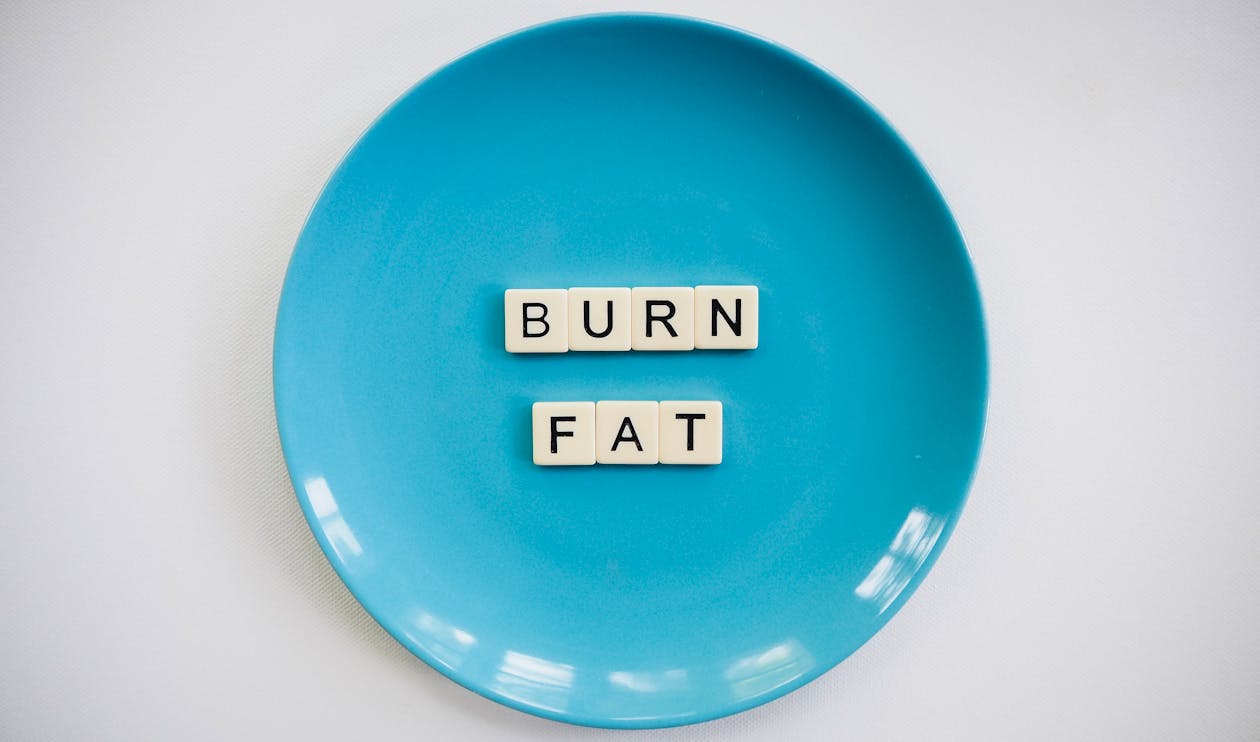Licorice root may be what you are looking for in terms of a fat burner/mood booster. In this blog post, we'll explore the benefits and potential risks of using licorice root as a fat burner. From its traditional uses to cutting-edge medical research, you'll learn everything you need to know about incorporating licorice root into your fitness regimen.
What is Licorice Root?
Licorice root is a herbal remedy commonly used in traditional Chinese, Middle Eastern, and Greek medicine to treat various ailments such as upset stomachs and respiratory issues. In addition to its traditional uses, licorice root has also been found to be effective against inflammation, bacteria and viruses. The active component of licorice root is glycyrrhizin which gives it antibacterial, anti-inflammatory, antioxidant properties as well as flavoring qualities. Licorice comes in various forms such as pills or liquids and can also be enjoyed in tea or gels for skin conditions like acne or eczema.
Traditional Uses of Licorice Root
Licorice root has been traditionally used to soothe digestive issues such as heartburn, acid reflux, and stomach ulcers. Its ability to reduce inflammation in the body due to its high levels of antioxidants is also well-known. Moreover, relieving sore throat and cough by thinning mucus is another traditional use of licorice root. While it is not known for being an appetite suppressant or fat burner like some other dietary supplements, licorice root has a variety of proven health benefits that make it a valuable addition to any wellness regimen.
Modern Uses of Licorice Root
Licorice root has become a popular natural sweetener for those with diabetes or trying to reduce their sugar intake. Its unique sweetness comes from glycyrrhizin, which is 30-50 times sweeter than sucrose but does not increase blood sugar levels. Additionally, licorice root's anti-inflammatory properties make it an effective treatment for skin conditions such as eczema and psoriasis. It can also boost adrenal gland function, which can improve energy levels and reduce stress. However, caution should be taken when consuming licorice root in large amounts as it may cause side effects such as high blood pressure and low potassium levels.
Fat Burning Properties of Licorice Root

Licorice root extract has fat burning properties that can aid in weight loss. Studies have shown that the active component of licorice root, glycyrrhizin, can help regulate cortisol levels in the body, which is a hormone associated with stress and weight gain. Licorice root extract also contains anti-inflammatory and antibacterial properties that may prevent infections and inflammation related to obesity. However, it is important to note that excessive consumption of licorice root can lead to negative side effects such as high blood pressure and water retention. Consulting with a healthcare professional before incorporating licorice root into your diet is recommended for safe use as a fat burner supplement.
Licorice Root Extract and Weight Loss
Licorice root extract is a popular supplement for those seeking to lose weight. It works by boosting the metabolism and suppressing appetite, making it easier to burn fat. Compared to other popular weight loss supplements like green tea extract or garcinia cambogia, licorice root extract has been proven in studies to be just as effective, if not more so.
Multiple studies have shown that licorice root extract can aid in weight loss efforts. In one study of overweight individuals, those who took licorice supplements lost significantly more body fat than those who did not take the supplement. Another study found that consuming licorice root helped reduce overall body mass index (BMI) and decrease waist circumference measurements. These findings suggest that adding licorice root extract to your diet may be beneficial for achieving your weight loss goals.
How Does Licorice Root Promote Weight Loss?
Licorice root promotes weight loss by activating thermogenesis, increasing metabolism, and promoting fat burning. Licorice root contains bioactive compounds such as glycyrrhetinic acid that have been shown to be effective in reducing body weight and adiposity in animal studies. Evidence-based research suggests that licorice root can aid digestion and increase the absorption of nutrients from food, leading to better energy utilization. Additionally, licorice may lower cortisol levels which are associated with increased abdominal fat accumulation. Overall, taking licorice root supplements or consuming it as a tea or gel may support healthy weight management when combined with proper diet and exercise habits.
Licorice Root and Cortisol Levels
High cortisol levels can have negative impacts on body composition and health, leading to increased body fat storage. However, regular consumption of licorice root has been shown to reduce cortisol secretion, aiding weight management. Licorice contains glycyrrhizin which is responsible for its antibacterial and anti-inflammatory properties but can also cause unfavorable effects in some individuals. DGL refers to licorice that does not contain glycyrrhizin.
- High cortisol levels lead to increased body fat storage
- Regular consumption of licorice reduces cortisol secretion
- Licorice contains glycyrrhizin which may have unfavorable effects in some individuals
Potential Risks and Side Effects of Licorice Root
Licorice root may cause high blood pressure, potassium depletion, and hormone imbalances. Glycyrrhizin in licorice root is responsible for many of the herb's adverse effects. Licorice products that have had glycyrrhizin removed are a safer option.
Licorice Root and High Blood Pressure
Licorice root can be dangerous for individuals with hypertension, as it may cause an increase in blood pressure due to its ability to retain sodium. It is important to use licorice root cautiously or avoid it altogether if you have high blood pressure. Additionally, those taking medications that treat hypertension should be aware of potential interactions with licorice and consult their doctor before using it.
Licorice Root and Hormone Levels
It can cause decreased testosterone levels in men when consumed excessively. Licorice root contains the compound glycyrrhizin, which can lead to lower testosterone levels in males as it blocks the conversion of testosterone into its active form.
May affect estrogen levels in women, potentially leading to menstrual irregularities or other complications. Glycyrrhizin may also impact estrogen metabolism, leading to hormonal imbalances that can manifest as menstrual cycle disruption and other health concerns for women.
Should not be used as a hormone replacement therapy. Despite its potential effects on hormones, licorice root cannot substitute for proper hormone replacement therapy (HRT) prescribed by a medical professional. Rather than using licorice root supplements or extracts alone for HRT purposes, individuals should seek out licensed healthcare professionals who specialize in this area and follow their advice closely.
- Excessive consumption of licorice root can decrease testosterone levels
- Licorice root has been found to have an impact on estrogen metabolism
- It is not recommended that licorice root be used as a hormone replacement therapy
Licorice Root and Potassium Levels
Licorice root has diuretic effects and can potentially lead to potassium loss. Patients who are taking medication for heart disease, kidney disease should use licorice root with caution since it can exacerbate hypokalemia (low potassium) when taken with certain drugs or supplements. It is important to consult a healthcare provider before using licorice root as a supplement, especially if you have any preexisting medical conditions or are taking medications that may interact negatively with the herb's components.
Licorice Root and Drug Interactions
Licorice Root and Drug Interactions
- Might interfere with the drug metabolism of various drugs like cyclosporine, digoxin, furosemide etc.
- Prolongs the half-life of cortisol resulting from combination usage can lead to side-effects like high BP & electrolyte imbalance.
- The concomitant use of Licopod® containing licorice extract may result in increased risk of side effects such as headache, palpitations etc.
It is important to talk to your doctor before taking licorice root supplements or products if you are taking any prescription medications. It is possible that licorice root may interact with certain medications and cause adverse effects. Additionally, do not exceed the recommended dosage for this supplement as it could have harmful consequences.
Conclusion
In conclusion, licorice root can be a useful natural supplement for those looking to enhance their fitness and health. Its active compounds have been shown to aid in weight loss and reduce inflammation. However, it's important to note that excessive consumption or prolonged use of licorice root supplements can lead to negative side effects such as hypertension and hormonal imbalances.
To ensure the benefits outweigh the risks, it is recommended that individuals consult with a healthcare professional before incorporating licorice root into their diet or supplementation regimen. Additionally, sticking to recommended dosages and avoiding prolonged use is crucial in preventing potential harm. As with any supplement or medication, balance is key when considering the use of licorice root as a fat burner or health aid.






